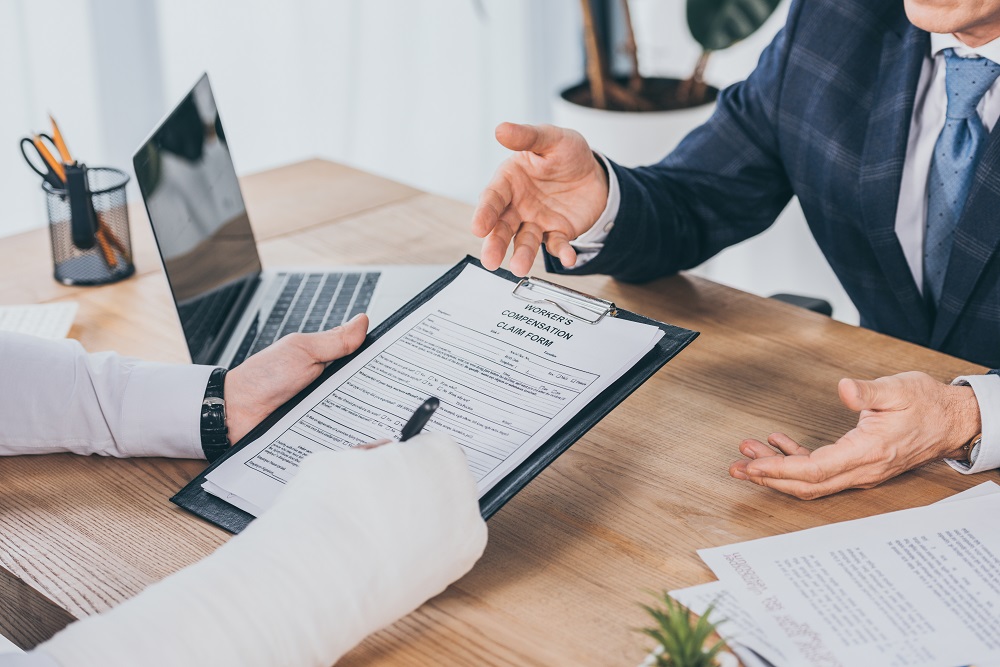
If you get hurt on the job, you may be eligible for workers’ compensation benefits in Georgia. These benefits can play an important role in the recovery process for you and your family. For instance, they can cover all costs that arise from the treatment of your injury. They can also cover a portion of your lost wages if your injury causes you to suffer a total or partial disability on a temporary or permanent basis.
Here, we provide an overview of who qualifies for workers’ compensation in Georgia. As you will see, the two main questions to ask are:
- Does an “employment relationship” exist between you and the party from whom you are seeking workers’ compensation benefits?
- Did your injury “arise out of” and “in the course of” your employment?
To discuss the specific facts of your case, please feel free to contact our experienced and dedicated workers’ compensation attorneys at Sherrod & Bernard, P.C., in Douglasville. Everyone on our legal team is extremely knowledgeable, genuinely friendly and always ready to help injured workers and their families to understand their legal rights and options.
Does an ‘Employment Relationship’ Exist?
The Georgia Workers’ Compensation Act requires all employers with at least three full-time or part-time employees to carry workers’ compensation insurance. The law applies to private, public and non-profit employers and their employees, including minors, seasonal workers and even undocumented aliens.
However, the law specifically excludes certain workers in Georgia from workers’ compensation coverage:
- Federal government employees
- Railroad workers
- Farmers and farm laborers
- Domestic servants.
To be eligible to receive workers’ compensation medical and/or disability benefits from a party, an “employment relationship” must exist. Typically, this relationship will exist if:
- You are an actual employee and not an independent contractor. If you have entered into a contract that intends to create an independent contractor relationship, get paid a set price per project or per unit (not an hourly or salary basis) and have control over the time, manner and method of the work being done, then you are likely an independent contractor. So, you would not qualify for workers’ compensation under O.C.G.A. § 34-9-2(e).
- Georgia law says you are an employee. A statute, O.C.G.A. § 34-9-1(2), specifically includes certain workers within its definition of an “employee.” For instance, the law includes firefighters, law enforcement personnel and emergency responders in that definition, including certain types of volunteers.
- You are considered to be a “statutory employee.” Even if you work for a subcontractor at a job site, under O.C.G.A. § 34-9-8, the principal contractor at the site may still be liable for providing workers’ compensation benefits if you get hurt at the site.
- You are an employee by virtue of “employment by estoppel.” This arises when a party elects to provide workers’ compensation by, for instance, paying medical and disability benefits. The party can’t turn around and deny that an employment relationship exists.
- You fit the definition of a “borrowed servant.” If your first employer loans your services to a second employer for a period, then you can be considered to be an employee of that second employer. However, the second employer must have control over you for that period (not the first employer) and must have the exclusive right to discharge you.
Unfortunately, many employers and their workers’ compensation insurers in Georgia try to avoid paying benefits by challenging a worker’s employment status. If you run into this problem, get help from Sherrod & Bernard, P.C., as soon as possible.
Did Your Injury ‘Arise Out Of’ and ‘In the Course Of’ Your Employment?
In addition to showing that an employment relationship exists, you must also show you suffered an accidental injury that arose out of and in the course of your employment. In other words, you must show:
- Arose out of – You were doing something that was a part of your job when your accident and injury occurred. For example, if your injury occurred while you were taking a break or running a personal errand, you likely would not be eligible for workers’ compensation in Georgia.
- In the course of – Your injury also must have occurred during a time period and at a place where you would reasonably be expected to be working. For instance, if you get into an accident while driving to and from work, your injury generally won’t qualify you for workers’ comp benefits. However, if you were driving on a business trip or making a delivery, it likely would be a compensable injury.
What if you have a pre-existing condition? Generally, you can still be eligible for workers’ compensation. However, your employment must have aggravated or accelerated the condition.
Does It Matter If You Were At Fault for Your Injury?
Unlike a personal injury claim, you do not need to show that anyone else was at fault in order to obtain workers’ compensation benefits in Georgia. You can qualify for benefits even if you were at fault – with a few key exceptions. Typically, you cannot obtain benefits if your injury occurred because:
- You were intoxicated by drugs or alcohol while on the job.
- You intentionally hurt yourself or engaged in other willful misconduct.
- You were fighting with someone else or engaged in “roughhousing.”
- You willfully neglected to use employer-provided safety devices.
If your employer denies your workers’ compensation claim for any of these reasons, you should still consult with an attorney. An attorney can conduct an independent, thorough investigation of your case to determine the exact reasons why your work injury occurred. For instance, even if you were intoxicated on the job, you may still qualify for benefits if your intoxication had nothing to do with your injury – perhaps a piece of equipment malfunctioned, or a co-worker did something negligent that hurt you.
Our Georgia Workers’ Compensation Lawyers Can Help You
Our attorneys at Sherrod & Bernard, P.C., have decades of experience with helping injured workers in Douglasville and throughout the surrounding communities of Atlanta’s western suburbs. If you believe that you qualify for workers’ compensation in Georgia, don’t wait to get in touch with us. Contact us today and receive a free consultation about your case.
